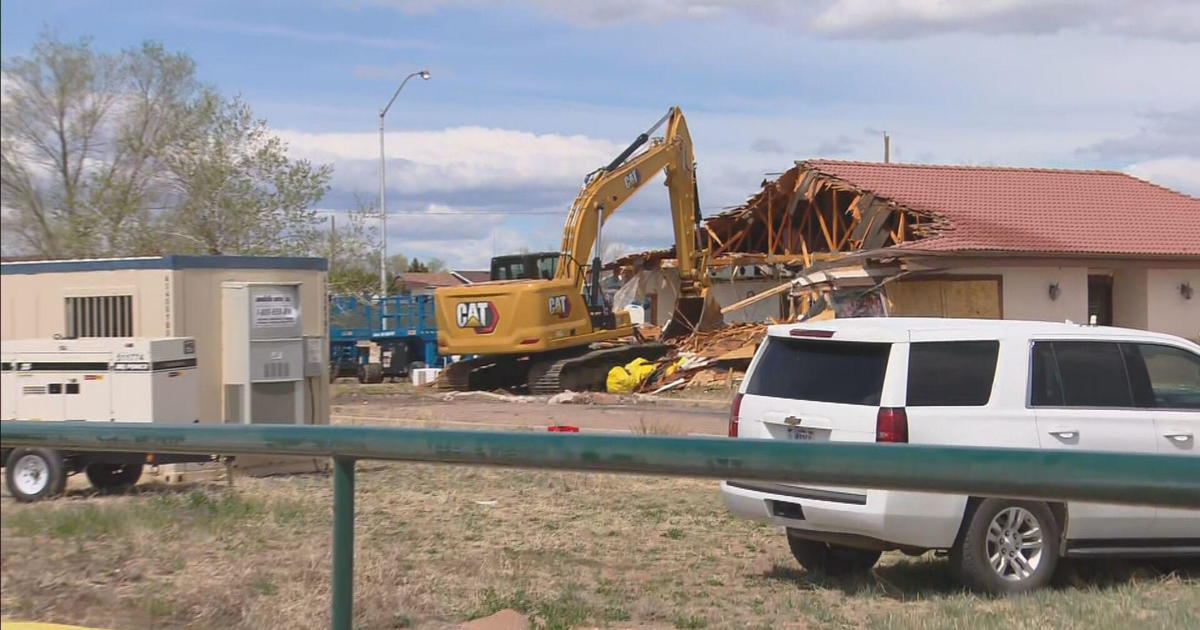Transcript: Alberto Carvalho on "Face the Nation," Aug. 14, 2022
The following is a transcript of an interview with Alberto Carvalho, superintendent of Los Angeles Unified School District, that aired on Sunday, Aug. 14, 2022, on "Face the Nation."
MARGARET BRENNAN: It's back to school time and districts nationwide are dealing with a serious teacher shortage. But it's hard to know exactly how many classrooms are teacher-less due to gaps in data from state to state. Alberto Carvalho is the superintendent of the second largest school district in the country, Los Angeles and he joins us this morning. Good morning to you. The Bureau of Labor Statistics says there are 300,000 fewer public school teachers than there were before the pandemic. These are numbers current in June. Do you know why so many teachers are leaving the classroom?
LOS ANGELES UNIFIED SCHOOL DISTRICT SUPERINTENDENT ALBERTO CARVALHO: Well, good morning, number one, I believe we do. Number one, there are economic conditions that have made it difficult for teachers to be recruited into the classroom, insufficient pay, critical hardship, the pandemic did not help. Certainly the over two years that teachers endured during virtual learning and then back to school, with extreme conditions faced by many certainly had a chilling effect on many. And as a result of that, a disproportionate number of teachers across the country decided to retire before accruing full benefits, that's truly unprecedented in America's history.
MARGARET BRENNAN: Well a member of your staff told us that out in L.A. to mitigate the shortage, you're giving out incentives grants, but also something called alternative certification programs where teachers can go into the classroom before they've fully completed their own credentialing in their field work. You've also hired instructors on provision and intern permits. That sounds like you're lowering standards.
CARVALHO: We're really not. I mean, these are fully credentialed individuals. They have a bachelor's or master's degree, they may not yet have the state certification, but they have the course content already done. They may be missing a specific exam, but look, we are for the very first time in over a decade fully staffed going into August 15, the very first day of school. We were able to hire an excess of 1,500 teachers. During the summer months, we partnered with colleges and universities and we cast a wide net for recruitment, we offered incentives. And last but not least, we, as you correctly said, embraced this concept of micro-credentialing to accelerate the hiring of qualified teachers for our students.
MARGARET BRENNAN: The average pay, according to the National Education Association, in your district for teachers, $87,000. Is the issue really pay? And given at the federal level that so much emergency funding has been pumped in- I think it's two and a half billion just from that spring rescue package- why isn't the incentive enough to solve this problem on a national scale?
CARVALHO: Well, number one, the incentives are positive. However, you need to have a pipeline of eligible candidates to fill these positions. And what we've seen is number one, there are insufficient candidates graduating from colleges of education nationally, particularly, teachers where the certification, with students with disabilities, elementary-age students as well. So the pay is important, working conditions are important, health benefits, packages are important. I can tell you one thing, considering the cost of living in Los Angeles, considering the cost of housing in Los Angeles, it is difficult to recruit individuals into our community. Nonetheless, for the very first time in over a decade, every single student in every single classroom in Los Angeles Unified will have a credentialed teacher on day one, that's truly stunning.
MARGARET BRENNAN: About 10 to 20,000 students you've said are not enrolled in school or who have stopped attending. Where are these kids going?
CARVALHO: Well, that's been the question that the country has been asking. We know as a result of the pandemic, many parents decided not to enroll kids, particularly youngest kids, kindergarten and pre K kids, in schools. Secondly, in communities like Los Angeles or Miami, where you have a significant percentage of students who are immigrants or children of immigrants, as a result of pandemic and worsening economic conditions, that may have left the community or the country. So we have the lost children of Los Angeles. There are lost children in Miami, New York, every single large urban center. That is why this past week, we scoured the community. We did knocks on doors, and we are bringing kids back into our school system.
MARGARET BRENNAN: It's an important story, Superintendent, we will stay on it. Thank you. We'll be right back.



